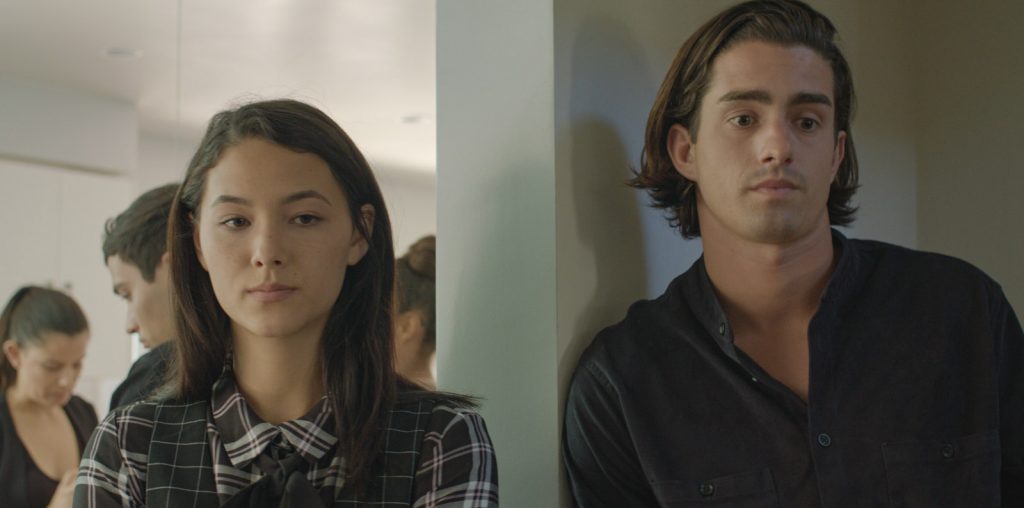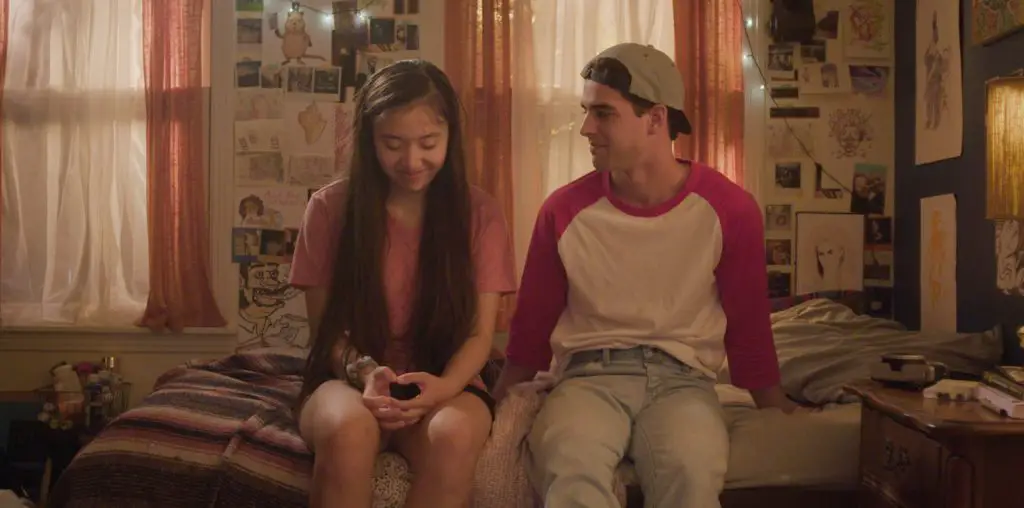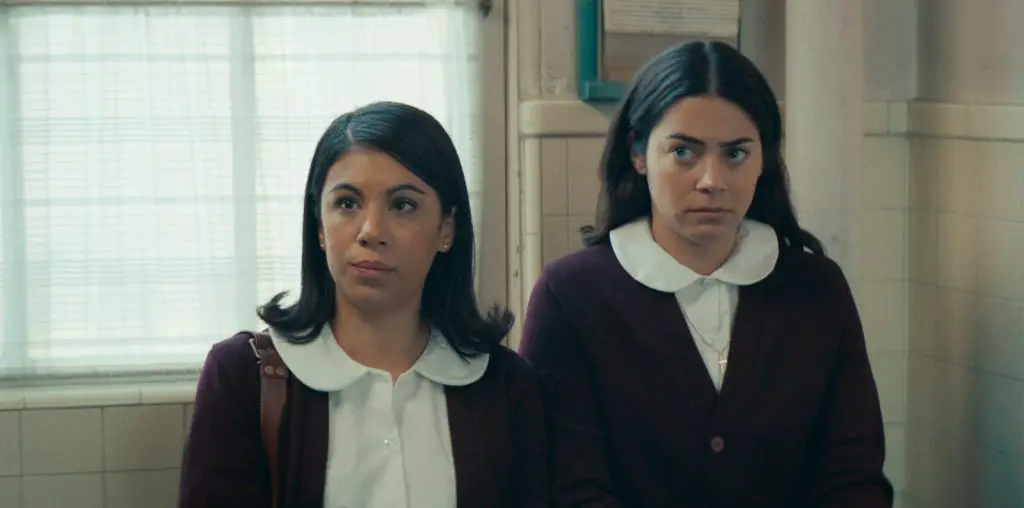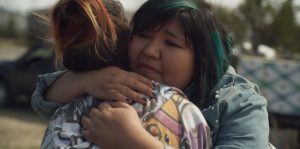
There’s a moment in Kuessipan where Shaniss (Yamie Grégoire) tells her friend that Mikuan (Sharon Ishpatao Fontaine) not dropping out of school doesn’t make her smarter than Shaniss. No, the act of dropping out doesn’t make one intelligent or not; school restrictions can stifle creative or smart people in terrible ways. The fact that Shaniss is a moron who does not realize that being abused and beaten by Greg (Douglas Grégoire) makes her a battered mother who should be staying at the shelter is what makes the protagonist so much smarter than her.
Every line out of Shaniss’ mouth is one confoundingly dumb statement after another, all the while Mikuan is constantly shown as too perceptive, for a teenager to be bothered with such an idiot. The emotional throughline of director Myriam Verreault’s narrative debut, based on Naomi Fontaine’s novel, which they co-wrote, hinges on this relationship, and neither filmmaker realized how poorly it comes off. The opening ten minutes desperately tries to establish this connection by showing them as little kids fishing at night with Mikuan’s family. The following day, Mikuan is heartbroken to learn that Shaniss moved 15-minutes (by car) away after her mom bailed.
Smash cut to present day, with the friends at a bar. Shaniss intentionally runs into Francis (Étienne Galloy), a white boy who hits it off with Mikuan, causing him to stumble into a barfly, spilling the man’s drink. This person gets super-pissed off, so Greg beats the crap out of him. Now, with the police bearing down on her life, Shaniss is worried about her baby, her love, and most importantly, her best friend.
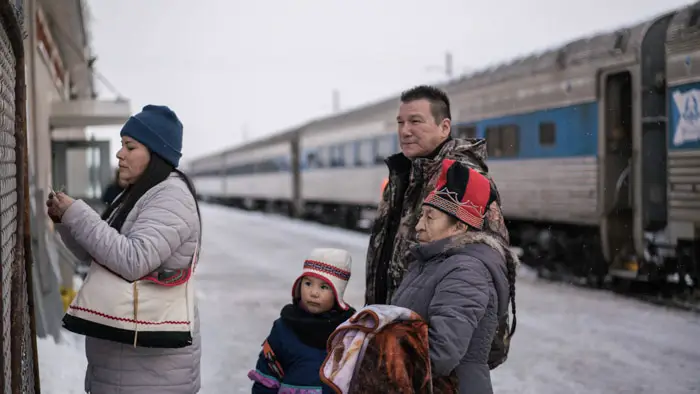
“Mikuan finds that Francis is in the same workshop, and soon the two begin to date.”
See, Mikuan finds their Québec Uashat Mak Mani-Utenam reservation too small for her ambitions, and she wants to get a great education at college. Luckily, her writing workshop teacher sees great potential in her. Mikuan finds that Francis is in the same workshop, and soon the two begin to date. She feels that Francis is the only one who understands her, especially as her family and Shaniss see no value in her education-centric dreams.
Because her friend fails even to try to understand what Mikuan wants, the emotional heart of this plodding tale never rings true. Never experiencing or witnessing what Shaniss and Mikuan offer each other beyond the fact that they’ve known each other since they were babies hurts Kuessipan. What also hinders the film from fully soaring is Verreault’s tell don’t show approach.
Between 2008 and 2011, she directed two documentaries, took several years off, coming back with a show (though how many episodes she helmed remains unclear) and this dramatic coming-of-age tale. The lack of cinematic experience shows as so much of the film is blandly filmed conversations. The lighting never accentuates the characters or the scenery in a moody way, just there to ensure people can see, in a very office-drone way.
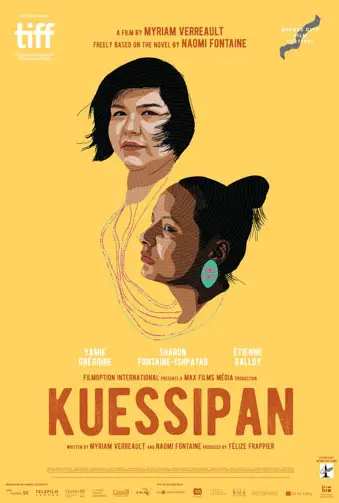
"…central to their identity [and] the way they see the world..."
